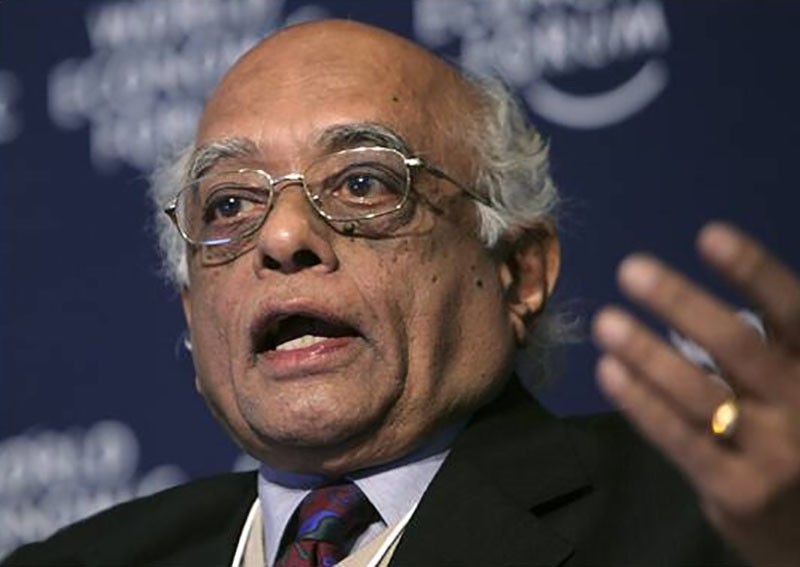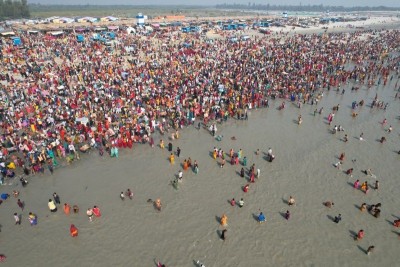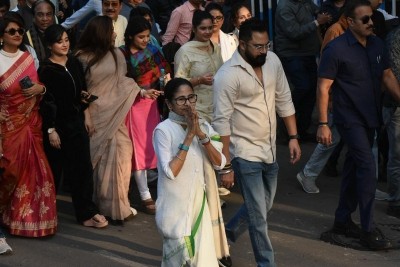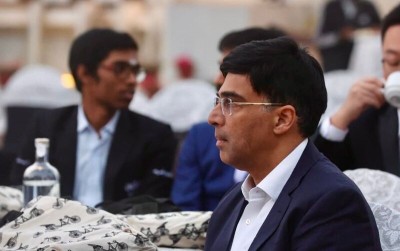
Dr R Chidambaram, architect of India’s nuclear programme, passes away at 88
Mumbai: Dr R Chidambaram, a former head of the Atomic Energy Commission and one of the key architects of India's nuclear programme, passed away on Saturday morning at Jaslok Hospital in Mumbai.
He was 88 and had been unwell for some time, according to a Department of Atomic Energy (DAE) official.
"It is with profound sorrow that we announce the passing of Dr. Rajagopala Chidambaram, an eminent physicist and one of India's most distinguished scientists, this morning (4 January 2025) at 3:20 AM. Dr. Chidambaram's unparalleled contributions to India's scientific and strategic capabilities and his visionary leadership in science and technology will forever be remembered," stated the DAE.
We mourn the passing of Dr. Rajagopala Chidambaram, a visionary scientist whose pioneering contributions shaped India's nuclear capabilities. His legacy will continue to inspire generations. Our deepest condolences. 1/2https://t.co/mN7oJ9R9mS@PMOIndia @PrinSciAdvOff @PIB_India pic.twitter.com/F9O28oAuYA
— DAE India (@DAEIndia) January 4, 2025
Early life and academic achievements
Born in 1936, Chidambaram was an alumnus of Presidency College, Chennai, and the Indian Institute of Science (IISc), Bengaluru. He obtained his PhD from IISc before joining the Bhabha Atomic Research Centre (BARC) in 1962, marking the beginning of a prolific career in nuclear science.
Key contributions to India's nuclear programme
Chidambaram played pivotal roles in India’s two nuclear tests, conducted in 1974 and 1998. His efforts were instrumental in establishing India as a nuclear power on the global stage.
"He played an integral role in the nation's first nuclear test in 1974, and led the Department of Atomic Energy team during the Pokhran-II nuclear tests in 1998. His contributions established India as a nuclear power on the global stage," the DAE noted in its statement.
Additionally, Chidambaram played a crucial role in the finalisation of the civil nuclear agreement with the United States, which ended India's isolation within the international nuclear community.
Leadership and vision
Chidambaram served as the Director of BARC from 1990 to 1993 and as Chairman of the Atomic Energy Commission and Secretary to the Government of India, DAE, from 1993 to 2000.
Following his tenure, he succeeded Dr A P J Abdul Kalam as the Principal Scientific Adviser (PSA) to the Government of India, a position he held for over 17 years.
He headed the nuclear component of the 1998 Operation Shakti at Pokhran, making him one of the rare atomic scientists who contributed to both Smiling Buddha in 1974 and Operation Shakti in 1998.
During his PSA tenure, he managed the aftermath of the 1998 nuclear tests and played a key role in securing special waivers for India in international nuclear commerce.
Contributions to science and technology
The DAE highlighted Chidambaram’s groundbreaking research in high-pressure physics, crystallography, and materials science.
"As a world-class physicist, Dr. Chidambaram's research significantly advanced the scientific community's understanding of these fields," the statement said.
He championed indigenous supercomputer development and conceptualised the National Knowledge Network, which connects educational and research institutions nationwide.
Advocacy for national development
Chidambaram emphasised the application of science and technology for national progress. He established programmes like Rural Technology Action Groups and the Society for Electronic Transactions and Security. His leadership focused on creating a "coherent synergy" within India’s scientific community.
Tributes and condolences
Prime Minister Narendra Modi expressed his condolences on social media, stating, "Deeply saddened by the demise of Dr Rajagopala Chidambaram.
"He was one of the key architects of India’s nuclear programme and made ground-breaking contributions in strengthening India’s scientific and strategic capabilities. He will be remembered with gratitude by the whole nation and his efforts will inspire generations to come."
Deeply saddened by the demise of Dr. Rajagopala Chidambaram. He was one of the key architects of India’s nuclear programme and made ground-breaking contributions in strengthening India’s scientific and strategic capabilities. He will be remembered with gratitude by the whole…
— Narendra Modi (@narendramodi) January 4, 2025
Ajit Kumar Mohanty, Secretary, DAE, described Chidambaram’s passing as an "irreparable loss" to the scientific community and the nation.
"Dr. Chidambaram was a doyen of science and technology whose contributions furthered India's nuclear prowess and strategic self-reliance," he said.
Dr. Ajit Kumar Mohanty, Secretary, DAE, stated, "Dr. Chidambaram was a doyen of science and technology whose contributions furthered India’s nuclear prowess and strategic self-reliance. His loss is an irreparable one for the scientific community and the nation." 2/2
— DAE India (@DAEIndia) January 4, 2025
Honours and legacy
Chidambaram’s contributions were recognised with prestigious honours, including the Padma Shri in 1975 and the Padma Vibhushan in 1999. He received honorary doctorates from multiple universities and was a fellow of several esteemed Indian and international scientific academies.
The DAE called him a "trailblazer, an inspirational leader, and a dedicated mentor to countless scientists and engineers."
As the nation mourns his loss, the DAE conveyed heartfelt condolences to his family, stating, "The nation mourns the loss of a true visionary. Our heartfelt condolences go out to his family and loved ones during this time of grief."
Support Our Journalism
We cannot do without you.. your contribution supports unbiased journalism
IBNS is not driven by any ism- not wokeism, not racism, not skewed secularism, not hyper right-wing or left liberal ideals, nor by any hardline religious beliefs or hyper nationalism. We want to serve you good old objective news, as they are. We do not judge or preach. We let people decide for themselves. We only try to present factual and well-sourced news.







